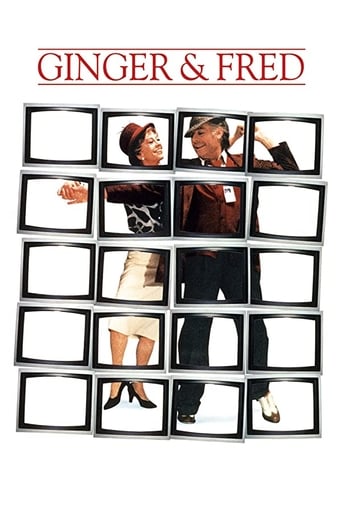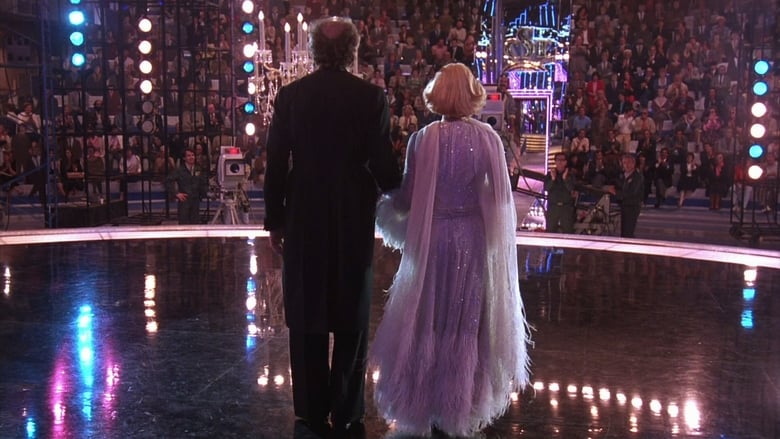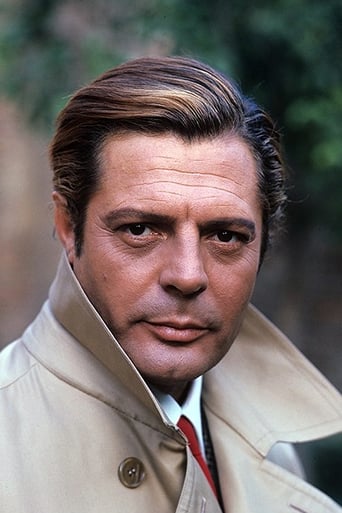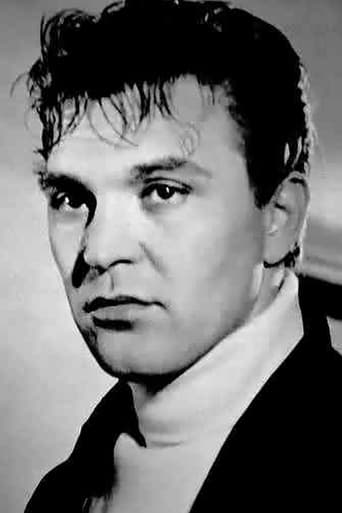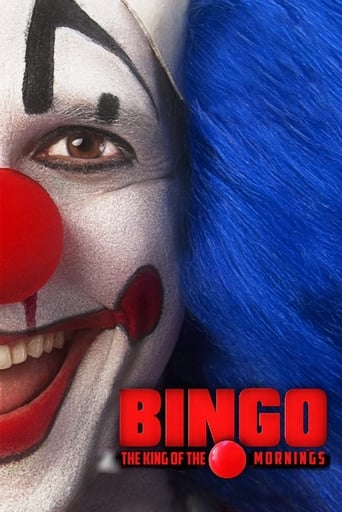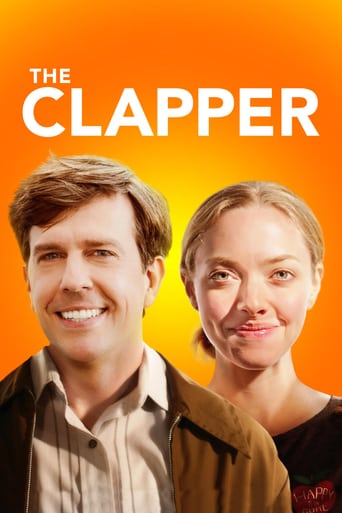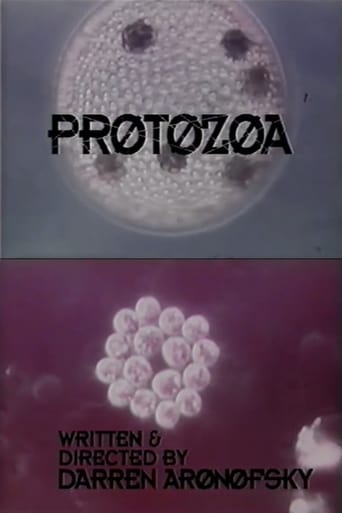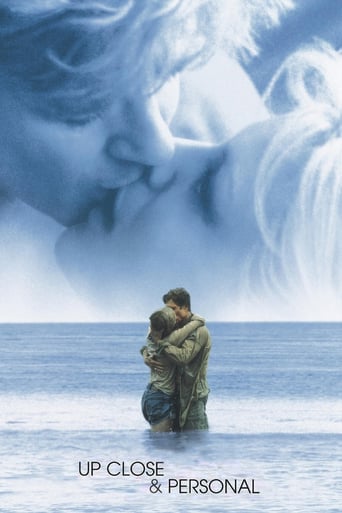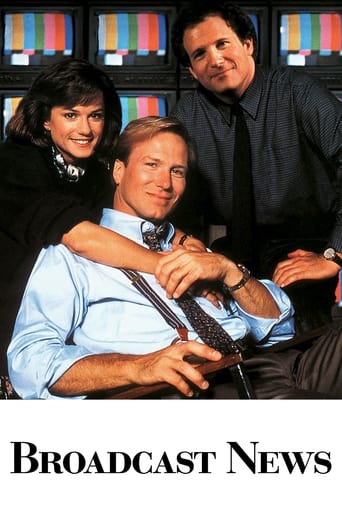Ginger and Fred (1986)
Amelia and Pippo are reunited after several decades to perform their old music-hall act, imitating Fred Astaire and Ginger Rogers, on a TV variety show.
Watch Trailer
Cast


Similar titles
Reviews
Purely Joyful Movie!
Don't listen to the negative reviews
It is an exhilarating, distressing, funny and profound film, with one of the more memorable film scores in years,
Exactly the movie you think it is, but not the movie you want it to be.
The later, nostalgic Fellini is always worth another look. How I want to like this more, a touching last adventure, albeit too late, that revives the old glories, ties up old emotions - a last irresistible chance to live. There's genius in the choice of subject: a couple of old dancing stars (Fellini favourites Mastroianni and Masina) have been invited to recreate their old act on a manic TV show. They prepare themselves physically and emotionally for this reunion, the last chance to tread the boards and feel the glory. This is Fellini - and his stars - well into old age, poised on the edge of oblivion, having got used, presumably, to irrelevancy, and now able to reflect wistfully on it all - even able to say a kind of goodbye. The homage to Astaire and Rogers is also a homage to cinema, and the idea of showing those old values displaced in the new tacky world of television is a fine ruse.Ginger (Masina) is immediately lost in this mad new world exactly as if she has stepped out of an old film. Outrageous advertising, rubbish piled in the streets, gangs of youths on motorbikes, the uncertainty of where they are being taken and what will happen to them - all nicely encapsulate the disorientation. The unstoppable madness of real life, it seems, is more Felliniesque than Fellini. When Mastroianni finally appears - after some anticipation - he is a sorry wreck of his former self. This is quite touching. They go over their old routine, feel the nerves once again, meet some old friends, get that sense of achievement for the last time.But what a hash Fellini makes of it, what a laborious rendering. It's a raucous gabble - treacle-think with yattering people who are really more irritating than cute. Yes, that's the theme: gentle nostalgia swamped by the manic, garish, loud, unstoppable modern world. But still, there had to be a subtler way of presenting an irritating world than irritating the audience. And let's be honest, this is his usual style. As usual, there are too many words in the script; there is barely a moment's rest from the breathless dialogue - most of it not as funny or quaint as it tries to be. It's never the words that raise a smile, but the silent moments that bring most out of the characters. If only Fellini had realised that.The inventiveness is desperate, and is only sporadically funny, nostalgic, or touching. Largely it seems like an excuse to parade a variety of freakish or eccentric characters, cramming in far too many of them. Group scenes are invariably chaotic and lack the precision and clarity of the old days, when black and white forced a more precise delineation of scene and character. What it lacks in crispness it tries to makes up for in sheer sensory experience, but it feels slapdash, and that feel is compounded, as always, by that terrible Cinecitta dubbing. This is not nearly the worst example, but it does appear slapped on at times like a veneer. Quite clearly the words they are mouthing are not the ones you hear; it is maddening and sometimes difficult to see who is talking from a distance, and, more importantly, it robs the serious characters of sincerity, and makes the flippant characters into cartoons. Some might take it as an element of style, a deliberately imposed artificiality implying that the characters are always bigger than their words - that's being overly indulgent.But it's hard to be too harsh. On the plus side, there is a fine arc to this film; it grows in meaning, matures, and finally blossoms into a delicate flower of nostalgia. There's great music, and the two stars, who are, you can tell, by nature wistful and gentle - that's enough. And I'm a big fan of railway station endings, having spent so long - whole nights often enough - enduring the loneliness of the long-distance traveller, even in Roma Termini the year this film was made. Everyone is benign - even the murderous mafia boss in handcuffs. Everyone has a beneficial role to play in society, a performance to make, no matter how freakish they are, how out of touch or out of date. Sure, the present makes a mockery of the past, but no more than the past, with more justification, makes a mockery of the present.I'm surprised I like Fellini. He's never critical of anything, no matter how stupid or weird, whereas I'm critical of everything, especially things human. He has no interest in the natural world, only in people, whereas I see everything, especially the human world, in the context of a bigger picture- nature - in which humans are just a few billion scurrying ants. So Fellini represents all the stuff that I have lost, or never gained - the side of me that got concreted over somewhere along the way; he is the antidote to misanthropy and ill-feeling of any sort, to all the misery that society, as a necessary by-product, tips upon itself; he is the little man getting his own back without bitterness. In short, he's good for the soul. Just a pity the producer or other person of influence didn't rein in much of the extraneous garishness (including the smutty jokes) here.People love the humanity in this film and will be prepared to overlook the directorial misjudgements. Fine. It must be nice to be so generous, but, in all honesty, from a filmcraft point of view, this could have been much better.
Federico Fellini is one of the greatest directors and screenwriters the world has ever seen...and that must be the biggest understatement of the century. He had the ability to take simple, real elements and transform them into a surreal, enchanting experience that speaks for itself without the aid of a complicated plot or a multi-million dollar production design (although that's not to say his films aren't visually breath-taking). Even though it's not one of his greatest masterpieces, "Ginger e Fred" is one such film that demonstrates his never-ending talent.The main plot is as simple as it gets. Amelia and Pippo (Giulietta Masina and Marcello Mastroianni) are old friends who haven't seen each other for years, and in their youth, they were reasonably famous for their imitation of Ginger Rogers and Fred Astaire, doing their classic tap dancing and glamorous choreographies. Now, they're very old, but they're being invited by a big (and sleazy) TV station to perform in their epic Christmas program reenacting their age-old act. The film is about these two old people, seeing each other after so many years, and remembering those golden years when they were celebrated, important, and had the spark of love and friendship alive for each other.They're not the only ones invited to the show, though. A huge cast of quirky and colourful characters also make their appearance, each one trying to grab their share of the spotlight performing sometimes interesting, sometimes plain stupid, acts and/or abilities and "amazing" stories. We see an (obviously) Fellini-esquire array of supporting freaks- the priest who renounced his vows to marry his lover, the monk who levitates, the singing slovenly dwarfs, Swedish townsfolk with their fifteen-tit cow, a transsexual who services an entire prison row and is being processed for it, a medium who listens to ghosts through a tape recorder...the list is endless. They all have odious, over-familiar dialogue which makes us relate to the grotesque things we think well of in life. Our heroes, Amelia and Pippo, are thrown in with this collection of freaks, and find themselves both hating and liking the situation they've accepted.The images the film presents are as unusual and as surreal as we have come to experience through other Fellini films. The dialogue sounds casual and witty, but is continually spiked with longing, electricity, loathing and disenchantment. Our main characters speak and travel this (seemingly) alternate world they've entered and find it horrifyingly equal to that they live in. The way they all try to hog the spotlight, their unnatural addiction to TV and celebrities, the way they're all brainwashed through the televised images...Fellini makes a point on all of these. He also continually presents TV commercials about pork and meat, each commercial bearing a scantly-clad woman with a gruesome piece of meat and proclaiming it to be utterly delicious. The people believe it. We also see various posters and written advertisements with strange and slightly disturbing images for a variety of products that don't work, and proclaiming nothing but lies. People believe them.We see two main characters, Amelia and Pippo, being likable characters trying to relive their friendship, trying to regain their previous vitality and trying to fit in with a series of "freaks" (in every sense of the word) in a world where greed, money, fame and awful manners have been allowed to run rampant. We see our main characters trying to quit their association with this distasteful universe only to be drawn in over and over again by a faint memory of fame, by an interlude with someone famous, by the expectations their friends have of them.We, as the audience, feel happy to relate to these old friends who have met once again, and feel their angst. We also feel a certain repugnant hate for the rest of the characters, unfeeling beasts who (to our surprise and chagrin) also seem, each in their own way, very similar to us and the people that surround us. And what is all the more interesting is the way Fellini never even delves into the personalities of these characters (with the exception of Amelia and Pippo) but indirectly spends every second of the film injecting meaning and objection into them. The images, of course, speak for themselves.Masina and Mastroianni are perfect in their roles, the music is both catchy and nostalgic, the costumes are...well, out of this world and the screenplay is both earthbound and ethereal. I couldn't understand the emotional implications of the ending, but I suppose that must be Fellini's point, to leave the audience thinking. And, believe me, this movie does get you thinking! And though it's definitely not one of Fellini's greatest, it still is entertaining and amusing to analyze.Rating: 3 stars and a half out of 4!
Memories are time capsules kept within every one of us, stored in the mind, but activated by the heart; the indelible images and sensations that make up an individual's life. A heartbeat away, they can be opened at any time, but let the bearer beware, for often they are bittersweet at best. `Ginger and Fred,' directed by Federico Fellini, and starring Giulietta Masina and Marcello Mastroianni, brings two people back together after nearly thirty years apart, a reunion of the professional dance team who for fifteen years prior to their retirement imitated Ginger Rogers and Fred Astaire to the delight of audiences all over Europe. Now, all these years later, they are to dance together again; this time on the popular television show, `We Are Proud To Present,' a `tabloid' type show which presents a variety of acts and guests weekly for the perusal of their curious audience. And so, amid a circus atmosphere of acts comprised of a troop of midgets, an Admiral, a number of celebrity impersonators and those whose personal lives have attracted media attention, Amelia Bonetti/'Ginger' (Masina) and Pippo Botticella/'Fred' (Mastroianni), come together again for one magical night during which they hope to recapture that spark of life they had embraced those many years ago. At it's core, Fellini's film is heart-felt and poignant. On one hand, it's a satire of popular television; on the other, it's an examination of the very real ramifications of those so-called `sentimental journeys' that those of a certain age are wont to take, and during which it is often discovered that it is, indeed, impossible to go home again. What really makes this film work is the stoic attitudes of the principal characters, especially Ginger, who though she is happy to see Pippo again refuses to allow sentiment to engulf her. Obviously, her memories are fond ones, but she manages to stay in the here and now, taking life as it is and not merely basking in what it was. Pippo, though, has a bit more of the wanton dreamer in him, possibly due to the fact that his life since the split with Amelia has not been as directionally grounded as that of his former partner. But as showtime approaches, they manage to strike a balance between the past and now that keeps them on track and holds much promise for an evening of making new memories to add to the old. Besides the story itself, what makes this film a real treasure is the presence and performance of the indomitable Giulietta Masina. In her mid-sixties when this was filmed, she still had `it' in spades. All the moves, the attitude, the coquettishness that made her one of the most expressive actresses ever. Even in her advancing years she was still an absolute joy to behold. There was something so down-to-earth, yet almost mystical about her, that gave her that rare quality of being `real' in every role she played. Extremely talented and charismatic, she was quite simply an extraordinary actress. Somehow-- and it's quite puzzling-- she never achieved the international stardom nor received the acclaim she deserved. This film proved to be her theatrical swan song, and simply put, what a way to go. She bowed out as she had always lived her life and performed-- with style, grace and more than a touch of class. Her `Ginger' is a truly memorable character. Not to be outdone by his diminutive co-star, Mastroianni gives a wonderful performance as well, capturing the essence of a man whose life has apparently been in one continuous state of flux. As the story unfolds, you get the feeling that his aloofness merely masks a somewhat undisciplined determination, probably more often than not derailed by the boy still residing in the man. Most importantly, though, he makes Pippo entirely believable, and the fact that he is so good in this film reflects, I believe, not only upon his ability as an actor, but upon the fact that Masina was so giving as an actress. It is apparent in the way they play so well off of one another, and the real chemistry between them is unmistakable. The supporting cast includes Frederick Ledebur (Admiral), Friedrich von Thun (Industrieller), Francesco Casale (Mafioso) and France Fabrizi (Show Host). One of Fellini's tenderest films, `Ginger and Fred' is something of a reflection upon life and love; watching it is like reminiscing with, or about, an old friend or loved one. The film has something of a dream-like quality about it that is so in keeping with Fellini's visionary style, and by the end you will find that you have been absolutely transported. Still, of all the wondrous images brought to the screen by Fellini during the many years of his career, the greatest of all was irrefutably Giulietta Masina. I rate this one 10/10.
Fellini takes a stab at television in this wonderful satire. It's Christmas, and an Italian "Ed Sullivan" type show is having a special, by re-uniting acts that were featured years ago. There is a hilarious (for those in the know) swipe at Woody Allen, who has been parodying Fellini for years. It's a bit deliberately paced, but the chemistry between the stars makes it worthwhile.

